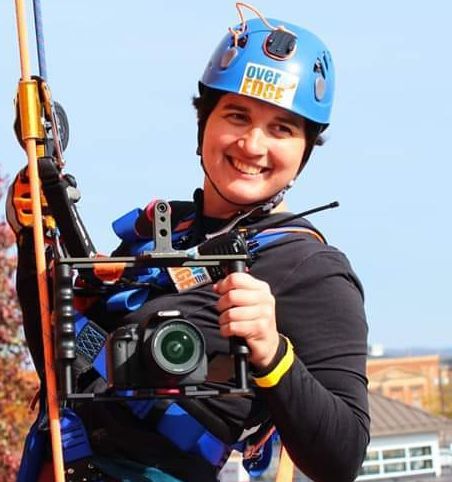
In the midst of a national debate about social media companies’ obligation to monitor and remove volatile posts on their platforms, many believe the easy access to child exploitation content is largely overlooked.
“It’s easy to get rid of Trump off of Twitter, but they can’t get child pornography off of Twitter and Snapchat,” said Lycoming County Detective William Weber, the county’s chief investigator of child abuse crimes.
For Weber, the majority of exploitation cases involve dating apps or websites like Snapchat, Facebook or Twitter. He recalled a case that involved a 15-year-old who used a dating app to solicit sex from two adult males.
Initially, Weber said it looked like it could have been a sex trafficking case. But soon he realized that the young girl was trafficking herself.
“Sex was never really normalized for her. What’s right? What’s wrong?” Weber said. “Twenty years ago you didn’t have the internet and it was harder to find. Now you can sit at home on your bed and it’s all there.”
A 2020 study by the Tech Transparency Project showed that between January 2013 and December 2019 over 300 cases of child exploitation went unnoticed by Facebook.
Despite claiming to have strict policies on distributing exploitative content, the social media mammoth only identified a small percentage of the cases to the U.S. Department of Justice. The other 366 cases were reported to the DOJ by individual users or other data-gathering methods.
The report goes on to show that the child exploitation cases include distributing images of sexual abuse, recruiting chidren and sex trafficking.
For Amber Morningstar, program director at the YWCA’s Wise Options in Williamsport, the biggest problem for young adults is Snapchat, a social media app that allows users to send each other photos, which the app then deletes soon afterward.
“We find a lot that a girl thinks she is in a relationship and can trust the person and shares a picture of herself in a bra, and it is screenshot,” Morningstar said.
These images spread like wildfire, she said, and can turn into a form of human trafficking. While the line between sexual exploitation and human trafficking through social media can be hard to distinguish, Morningstar said trafficking is anytime someone exerts power over another person for their own personal gain.
“It could be something as local as just the high school kids sharing pictures or something larger where you have a truck stop where victims would be picked up,” Morningstar said.
Building trust with victims is often the largest struggle of all. Wise Options often is the first stop for victims of sexual exploitation or trafficking, but only about 5% of those individuals will report the abuse to police, Morningstar said.
“It’s very difficult to get a victim of sexual exploitation and sex trafficking to trust us and work with us,” she said. “It’s kind of the hidden problem.”
In 2019, the U.S. saw a roughly 20% increase in human trafficking cases, with 22,326 reported. However, the total number could be much higher. A 2005 report shows that an estimated 200,000 children are trafficked in the United States each year.
In Pennsylvania, 540 human trafficking victims and 148 traffickers were identified in 2019.
Lycoming County and the greater Northcentral region is no stranger to human trafficking. For years, the Route 15 highway has been a prominent corridor for traffickers with many stopping in Williamsport, Lewisburg and other towns between Harrisburg and New York state.
The Lycoming County Human Trafficking Outreach Team renewed its efforts in 2019 to increase awareness for school children, parents, teachers and hotel workers on how to identify trafficking cases.
Adam Welteroth, the outreach team president, said education efforts were stunted in 2020 due to COVID-19 restrictions; however, he plans to redouble efforts in 2021.
“My hope and desire is that once the community has a good grip on COVID and once the restrictions are lifted … we’ll be hitting the ground running and really hard. “Just because COVID was out there doesn’t mean human trafficking has stopped.”
If you are a victim of sexual exploitation or human trafficking, or know of someone who is, call the Wise Options hotline: 1-800-326-8483 or (570) 323-8167.




